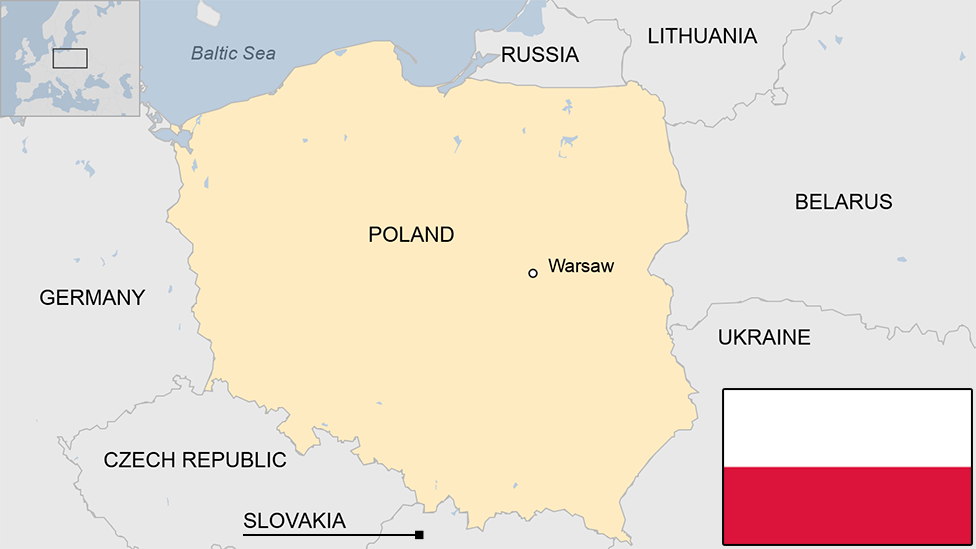Trump tells Russia to stop 'destabilising' Ukraine
- Published
Trump: Russia should join "the fight against common enemies and in defence of civilisation itself"
US President Donald Trump has called on Russia to stop "destabilising" Ukraine and other countries and end support for "hostile regimes" such as those in Syria and Iran.
Speaking in the Polish capital Warsaw, Mr Trump urged Russia to "join the community of responsible nations".
The Kremlin rejected his comments.
The US leader has travelled to Hamburg for the G20 summit, where he will meet Russian President Vladimir Putin for the first time.
He also faces differences with other leaders, including German Chancellor Angela Merkel, who said last week that the G20 would focus on the Paris climate deal - which the US has withdrawn from.
Up to 100,000 protesters are expected over the two-day event and police have warned of potentially violent clashes. They have already confiscated a number of homemade weapons.
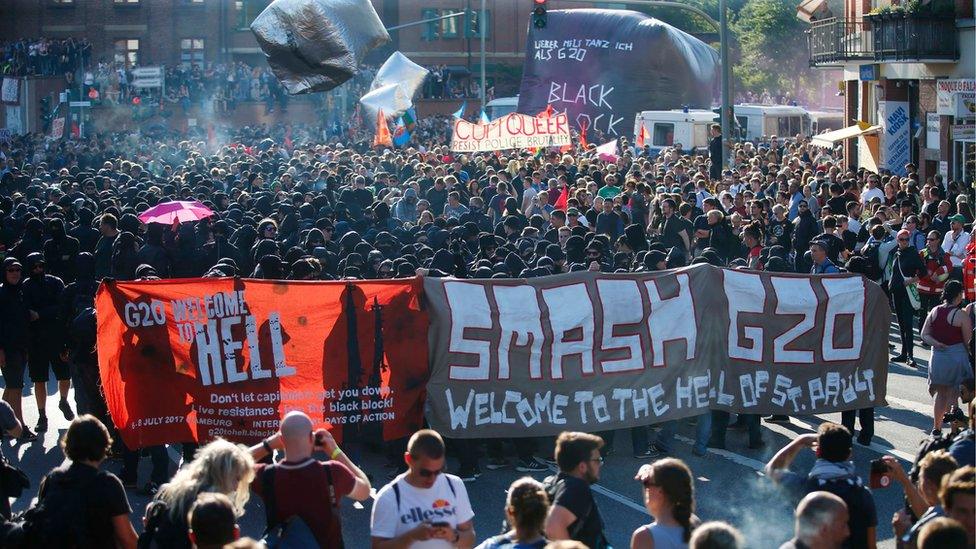
The "Welcome to Hell" protest march is under way
"It's important because you have the biggest meeting of all of the leading rulers of the main countries in the world - the G20 - and I don't like some of the politics that they're doing, especially that of [Recep Tayyip] Erdogan, of Putin and of Trump," one protester told the BBC.
In Warsaw, Mr Trump argued that the future of Western civilisation itself was at stake and asked whether the West had the "will to survive".
He urged Russia to join the "fight against common enemies and in defence of civilisation itself".

Russia's waiting game - BBC's Sarah Rainsford, Moscow
Russian interference? No-one knows - Trump
Mr Trump referred to Russia's "destabilising" behaviour twice in one day in Poland. But the Kremlin spokesman has shrugged that off, saying simply that Moscow "does not agree". It's all part of the wait-and-see approach here.
Russia once had great hopes that Donald Trump could rescue relations from the pit into which they were plunged after it annexed Crimea from Ukraine. Almost six months into the Trump presidency, there may be increasing pessimism.
But the Kremlin is calling Mr Trump's meeting with Mr Putin on Friday an important chance to get acquainted. Perhaps it is betting that personal dynamics will help overcome policy differences.
After all, officials here insist that it is simply "Russophobia" in the US that has prevented President Trump "getting along" with Russia as he said he wanted.
They have certainly noted how in Poland he shied away from accusing Russia unequivocally of meddling in the US elections. Moscow has argued all along that there is no proof. In public at least, Mr Trump appeared to agree with that.

The US leader also hailed Poland as an example of a country ready to defend Western freedoms.
Poland's conservative government shares Mr Trump's hostile view of immigration and strong sense of sovereignty.
Donald Trump's handshake is left hanging by the Polish president's wife
Giving a news conference ahead of his Warsaw speech, Mr Trump also:
called on countries to demonstrate to North Korea that there were consequences for its "very bad behaviour" and said "something will have to be done about it"
said America's "strong alliance with Poland and Nato" remained "critical to deterring conflict"
said in reference to Syria that "any nation which values human life can never tolerate the use of chemical weapons"
said "nobody really knows for sure" if Russia interfered in last year's US election
said CNN had taken "too seriously" a mock video he tweeted in which he wrestles a person with the broadcaster's logo for a head.
Russian TV dismisses Poland visit - BBC Monitoring
NTV correspondent - "After the icy reception [Trump] was given in Europe in May, what he needs now are comfortable and favourable surroundings, a picture along the lines of 'look at how they adore us here'."
Ren TV presenter - Trump was keen to play on differences within Europe and help Poland "cobble together an Eastern European bloc opposed to EU leaders... Trump is only too happy to pour oil onto the fire of European discord."
- Published5 July 2017
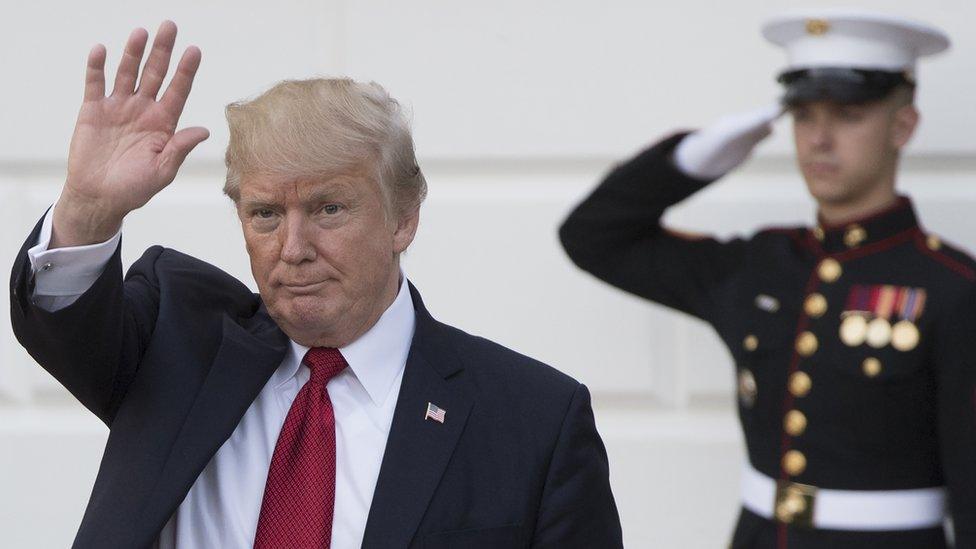
- Published6 July 2017
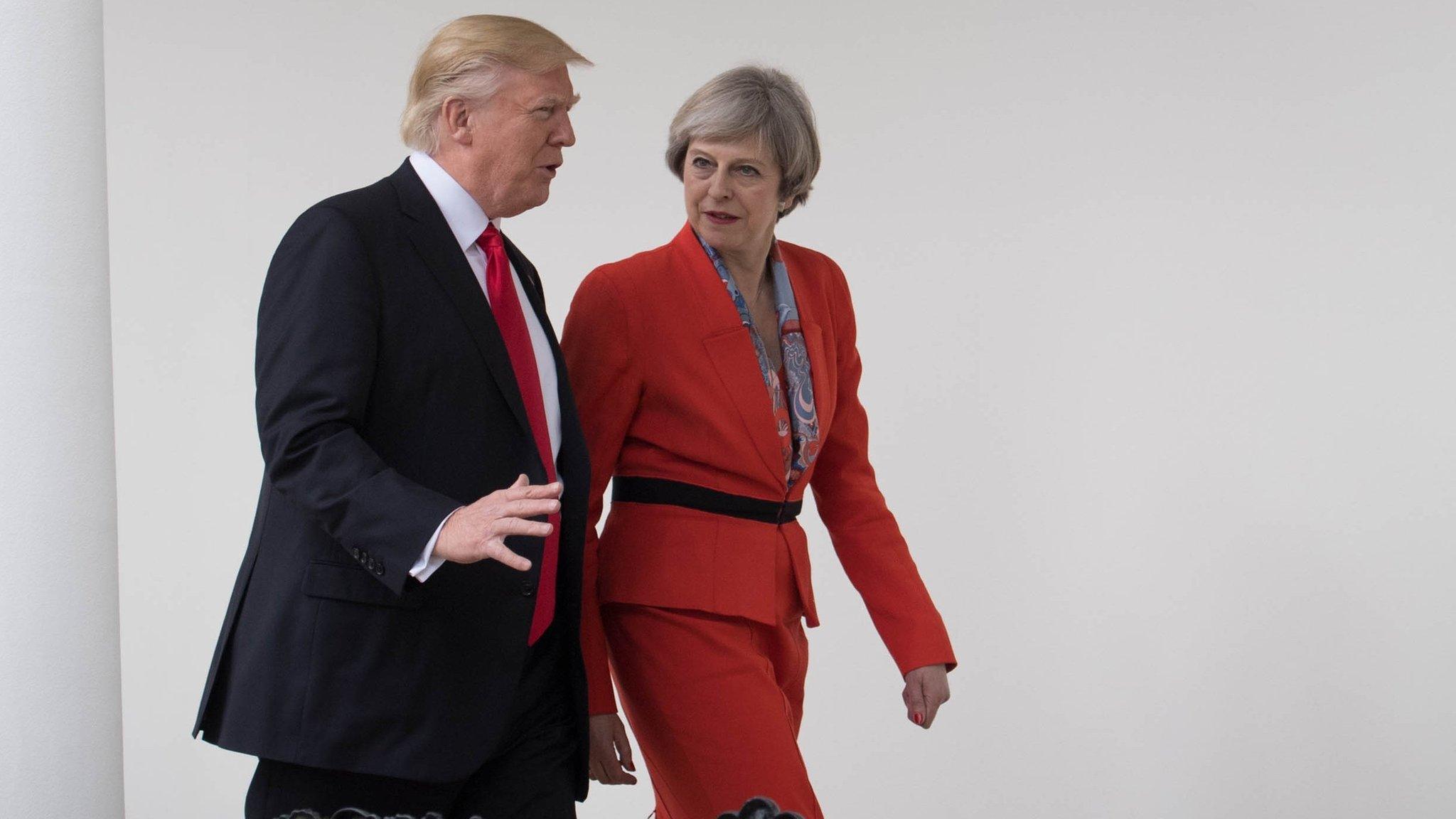
- Published25 May 2017
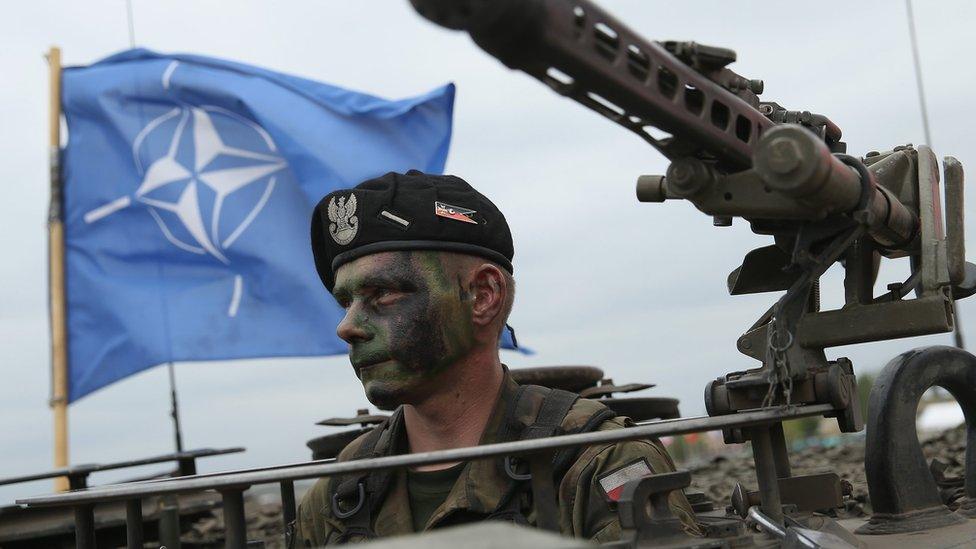
- Published9 March 2017
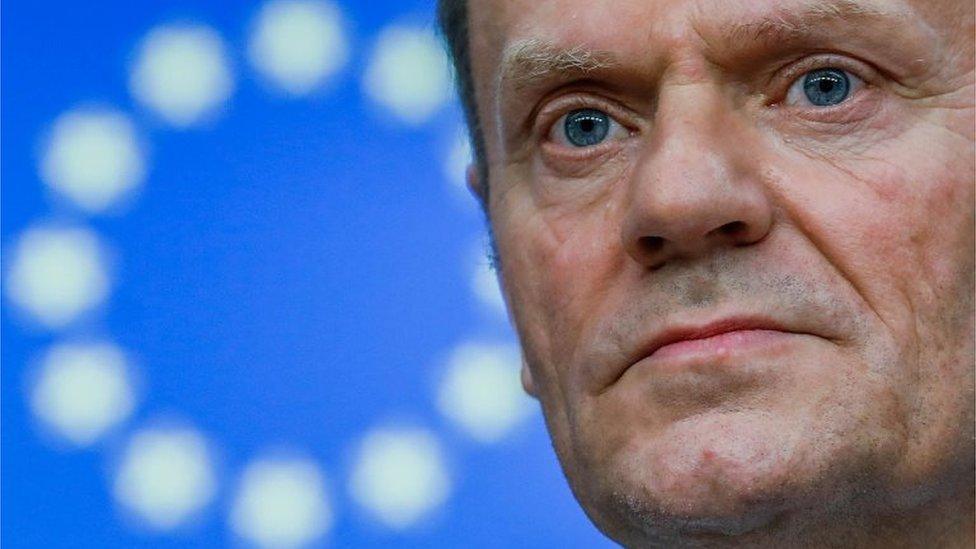
- Published6 April 2017
- Published9 March 2017
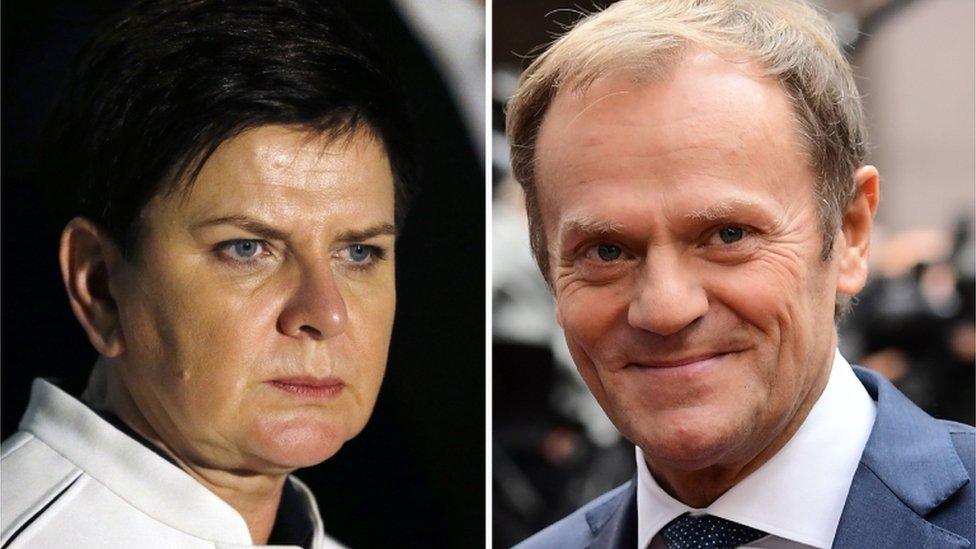
- Published25 May 2017
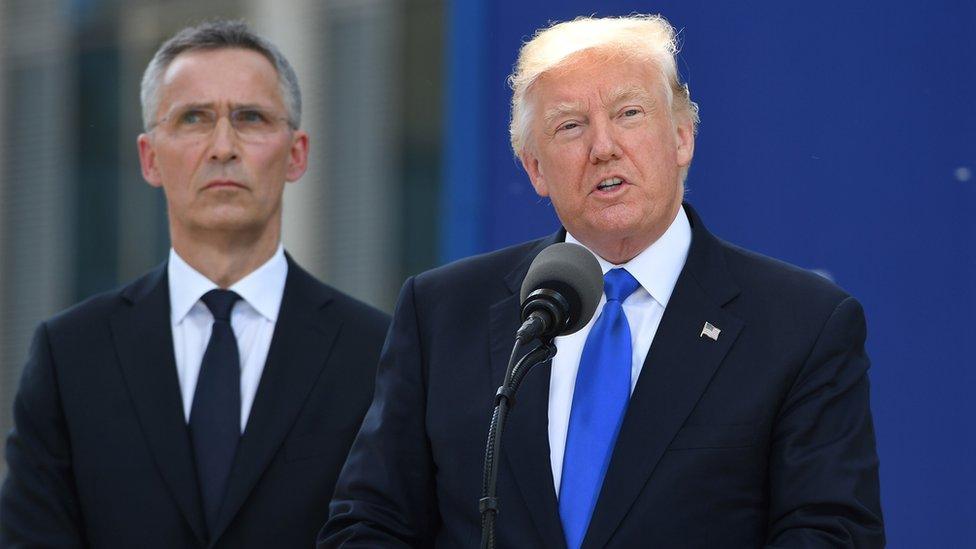
- Published20 January
